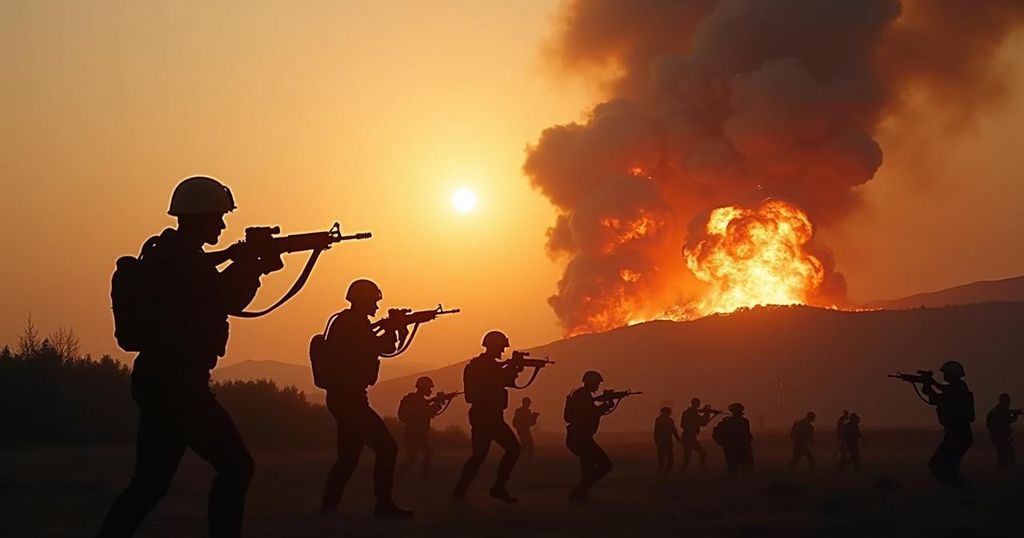The Israeli military has intensified airstrikes against Hezbollah in Lebanon following the killing of its leader Hassan Nasrallah. Iran has vowed revenge for his death, prompting major regional tensions. US President Joe Biden described the assassination as justice, urging a ceasefire amid ongoing violence resulting in numerous casualties in Lebanon.
In response to the recent killing of Hezbollah leader Hassan Nasrallah, the Israeli military has intensified its operations against Hezbollah in Lebanon. Early Sunday, Israel reported conducting strikes on multiple Hezbollah targets, including missile launchers aimed at its territory. This escalation comes as Iran, which backs Hezbollah, has pledged that Nasrallah’s death will not be overlooked, laying out a period of five days of public mourning. US President Joe Biden commented that Nasrallah’s demise could be viewed as a “measure of justice” for those affected by Hezbollah’s longstanding campaign of violence, which he characterized as a “40-year reign of terror.” He simultaneously reiterated the necessity for a ceasefire to alleviate tensions between Israel and Hezbollah. The Israeli Defense Forces had previously announced on Saturday that it had successfully “eliminated” Nasrallah in a targeted airstrike in Beirut. Following this, Hezbollah confirmed the news of their leader’s death and declared their commitment to retaliate against Israel. Israeli Prime Minister Binyamin Netanyahu stated that the assassination would alter the “balance of power in the region for years to come.” In the wake of these developments, the Lebanese health ministry reported a casualty count of at least 33 individuals killed and nearly 200 injured amid ongoing airstrikes.
The conflict between Israel and Hezbollah has been ongoing for decades, influenced heavily by regional dynamics involving Iran. Nasrallah had been a pivotal figure in this militant group, known for his aggressive stance against Israel. The recent escalation has not only resulted from the targeted killing of Nasrallah but also from the broader geopolitical struggles in the Middle East, where alignments and hostilities shift frequently, especially concerning the roles of Iran and the United States in the region.
The assassination of Hassan Nasrallah marks a significant escalation in the conflict between Israel and Hezbollah, with potential long-term ramifications for regional stability. While Israel has signaled a decisive military response, Iran’s commitment to avenge Nasrallah’s death could lead to further hostilities. Both regional and international observers await developments as the situation unfolds.
Original Source: www.france24.com






